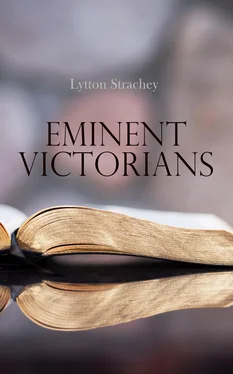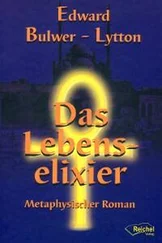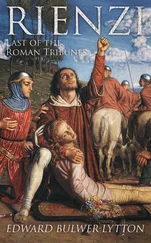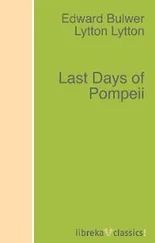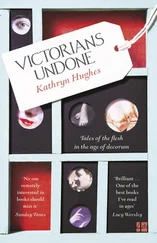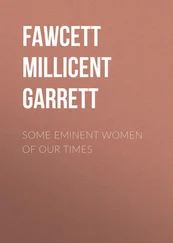Lytton Strachey - Eminent Victorians
Здесь есть возможность читать онлайн «Lytton Strachey - Eminent Victorians» — ознакомительный отрывок электронной книги совершенно бесплатно, а после прочтения отрывка купить полную версию. В некоторых случаях можно слушать аудио, скачать через торрент в формате fb2 и присутствует краткое содержание. Жанр: unrecognised, на английском языке. Описание произведения, (предисловие) а так же отзывы посетителей доступны на портале библиотеки ЛибКат.
- Название:Eminent Victorians
- Автор:
- Жанр:
- Год:неизвестен
- ISBN:нет данных
- Рейтинг книги:3 / 5. Голосов: 1
-
Избранное:Добавить в избранное
- Отзывы:
-
Ваша оценка:
- 60
- 1
- 2
- 3
- 4
- 5
Eminent Victorians: краткое содержание, описание и аннотация
Предлагаем к чтению аннотацию, описание, краткое содержание или предисловие (зависит от того, что написал сам автор книги «Eminent Victorians»). Если вы не нашли необходимую информацию о книге — напишите в комментариях, мы постараемся отыскать её.
Eminent Victorians — читать онлайн ознакомительный отрывок
Ниже представлен текст книги, разбитый по страницам. Система сохранения места последней прочитанной страницы, позволяет с удобством читать онлайн бесплатно книгу «Eminent Victorians», без необходимости каждый раз заново искать на чём Вы остановились. Поставьте закладку, и сможете в любой момент перейти на страницу, на которой закончили чтение.
Интервал:
Закладка:
One of the disciples at Littlemore was James Anthony Froude, the younger brother of Hurrell, and it fell to his lot to be responsible for the biography of St. Neot. While he was composing it, he began to feel some qualms. Saints who lighted fires with icicles, changed bandits into wolves, and floated across the Irish Channel on altar-stones, produced a disturbing effect on his historical conscience. But he had promised his services to Newman, and he determined to carry through the work in the spirit in which he had begun it. He did so; but he thought it proper to add the following sentence by way of conclusion: 'This is all, and indeed rather more than all, that is known to men of the blessed St. Neot; but not more than is known to the angels in heaven.'
Meanwhile, the English Roman Catholics were growing impatient; was the great conversion never coming, for which they had prayed so fervently and so long? Dr. Wiseman, at the head of them, was watching and waiting with special eagerness. His hand was held out under the ripening fruit; the delicious morsel seemed to be trembling on its stalk; and yet it did not fall. At last, unable to bear the suspense any longer, he dispatched to Littlemore Father Smith, an old pupil of Newman's, who had lately joined the Roman communion, with instructions that he should do his best, under cover of a simple visit of friendship, to discover how the land lay. Father Smith was received somewhat coldly, and the conversation ran entirely on topics which had nothing to do with religion. When the company separated before dinner, he was beginning to think that his errand had been useless; but, on their reassembling, he suddenly noticed that Newman had changed his trousers, and that the colour of the pair which he was now wearing was grey. At the earliest moment, the emissary rushed back post-haste to Dr. Wiseman. 'All is well,' he exclaimed; 'Newman no longer considers that he is in Anglican orders." Praise be to God!' answered Dr. Wiseman. 'But how do you know?' Father Smith described what he had seen. 'Oh, is that all? My dear father, how can you be so foolish?' But Father Smith was not to be shaken. 'I know the man,' he said, and I know what it means. 'Newman will come, and he will come soon.'
And Father Smith was right. A few weeks later, Newman suddenly slipped off to a priest, and all was over. Perhaps he would have hesitated longer still, if he could have foreseen how he was to pass the next thirty years of his unfortunate existence; but the future was hidden, and all that was certain was that the past had gone forever, and that his eyes would rest no more upon the snapdragons of Trinity.
The Oxford Movement was now ended. The University breathed such a sigh of relief as usually follows the difficult expulsion of a hard piece of matter from a living organism, and actually began to attend to education. As for the Church of England, she had tasted blood, and it was clear that she would never again be content with a vegetable diet. Her clergy, however, maintained their reputation for judicious compromise, for they followed Newman up to the very point beyond which his conclusions were logical, and, while they intoned, confessed, swung incense, and burned candles with the exhilaration of converts, they yet managed to do so with a subtle nuance which showed that they had nothing to do with Rome. Various individuals underwent more violent changes. Several had preceded Newman into the Roman fold; among others an unhappy Mr. Sibthorpe, who subsequently changed his mind, and returned to the Church of his fathers, and then—perhaps it was only natural—changed his mind again. Many more followed Newman, and Dr. Wiseman was particularly pleased by the conversion of a Mr. Morris, who, as he said, was 'the author of the essay, which won the prize on the best method of proving Christianity to the Hindus'. Hurrell Froude had died before Newman had read the fatal article on St. Augustine; but his brother, James Anthony, together with Arthur Clough, the poet, went through an experience which was more distressing in those days than it has since become; they lost their faith. With this difference, however, that while in Froude's case the loss of his faith turned out to be rather like the loss of a heavy portmanteau, which one afterwards discovers to have been full of old rags and brickbats, Clough was made so uneasy by the loss of his that he went on looking for it everywhere as long as he lived; but somehow he never could find it. On the other hand, Keble and Pusey continued for the rest of their lives to dance in an exemplary manner upon the tight-rope of High Anglicanism; in such an exemplary manner, indeed, that the tight-rope has its dancers still.
IV
Table of Contents
MANNING was now thirty-eight, and it was clear that he was the rising man in the Church of England. He had many powerful connections: he was the brother-in-law of Samuel Wilberforce, who had been lately made a bishop; he was a close friend of Mr. Gladstone, who was a Cabinet Minister; and he was becoming well known in the influential circles of society in London. His talent for affairs was recognised not only in the Church, but in the world at large, and he busied himself with matters of such varied scope as National Education, the administration of the Poor Law, and the Employment of Women. Mr. Gladstone kept up an intimate correspondence with him on these and on other subjects, mingling in his letters the details of practical statesmanship with the speculations of a religious thinker. 'Sir James Graham,' he wrote, in a discussion of the bastardy clauses of the Poor Law, 'is much pleased with the tone of your two communications. He is disposed, without putting an end to the application of the workhouse test against the mother, to make the remedy against the putative father "real and effective" for expenses incurred in the workhouse. I am not enough acquainted to know whether it would be advisable to go further. You have not proposed it; and I am disposed to believe that only with a revived and improved discipline in the Church can we hope for any generally effective check upon lawless lust.' 'I agree with you EMINENTLY,' he writes, in a later letter, 'in your doctrine of FILTRATION. But it sometimes occurs to me, though the question may seem a strange one, how far was the Reformation, but especially the Continental Reformation, designed by God, in the region of final causes, for that purification of the Roman Church which it has actually realised?'
In his archdeaconry, Manning lived to the full the active life of a country clergyman. His slim, athletic figure was seen everywhere in the streets of Chichester, or on the lawns of the neighbouring rectories, or galloping over the downs in breeches and gaiters, or cutting brilliant figures on the ice. He was an excellent judge of horse-flesh, and the pair of greys which drew his hooded phaeton so swiftly through the lanes were the admiration of the county. His features were already beginning to assume their ascetic cast, but the spirit of youth had not yet fled from them, so that he seemed to combine the attractions of dignity and grace. He was a good talker, a sympathetic listener, a man who understood the difficult art of preserving all the vigour of a manly character and yet never giving offence. No wonder that his sermons drew crowds, no wonder that his spiritual advice was sought for eagerly by an ever-growing group of penitents; no wonder that men would say, when his name was mentioned, 'Oh, Manning! No power on earth can keep HIM from a bishopric!'
Such was the fair outward seeming of the Archdeacon's life; but, the inward reality was different. The more active, the more fortunate, the more full of happy promise his existence became, the more persistently was his secret imagination haunted by a dreadful vision—the lake that burneth forever with brimstone and fire. The temptations of the Evil One are many, Manning knew; and he knew also that, for him at least, the most subtle and terrible of all temptations was the temptation of worldly success. He tried to reassure himself, but it was in vain. He committed his thoughts to a diary, weighing scrupulously his every motive, examining with relentless searchings into the depths of his heart. Perhaps, after all, his longings for preferment were merely legitimatehopes for 'an elevation into a sphere of higher usefulness'. But no, there was something more than that. 'I do feel pleasure,' he noted, 'in honour, precedence, elevation, the society of great people, and all this is very shameful and mean.'
Читать дальшеИнтервал:
Закладка:
Похожие книги на «Eminent Victorians»
Представляем Вашему вниманию похожие книги на «Eminent Victorians» списком для выбора. Мы отобрали схожую по названию и смыслу литературу в надежде предоставить читателям больше вариантов отыскать новые, интересные, ещё непрочитанные произведения.
Обсуждение, отзывы о книге «Eminent Victorians» и просто собственные мнения читателей. Оставьте ваши комментарии, напишите, что Вы думаете о произведении, его смысле или главных героях. Укажите что конкретно понравилось, а что нет, и почему Вы так считаете.
